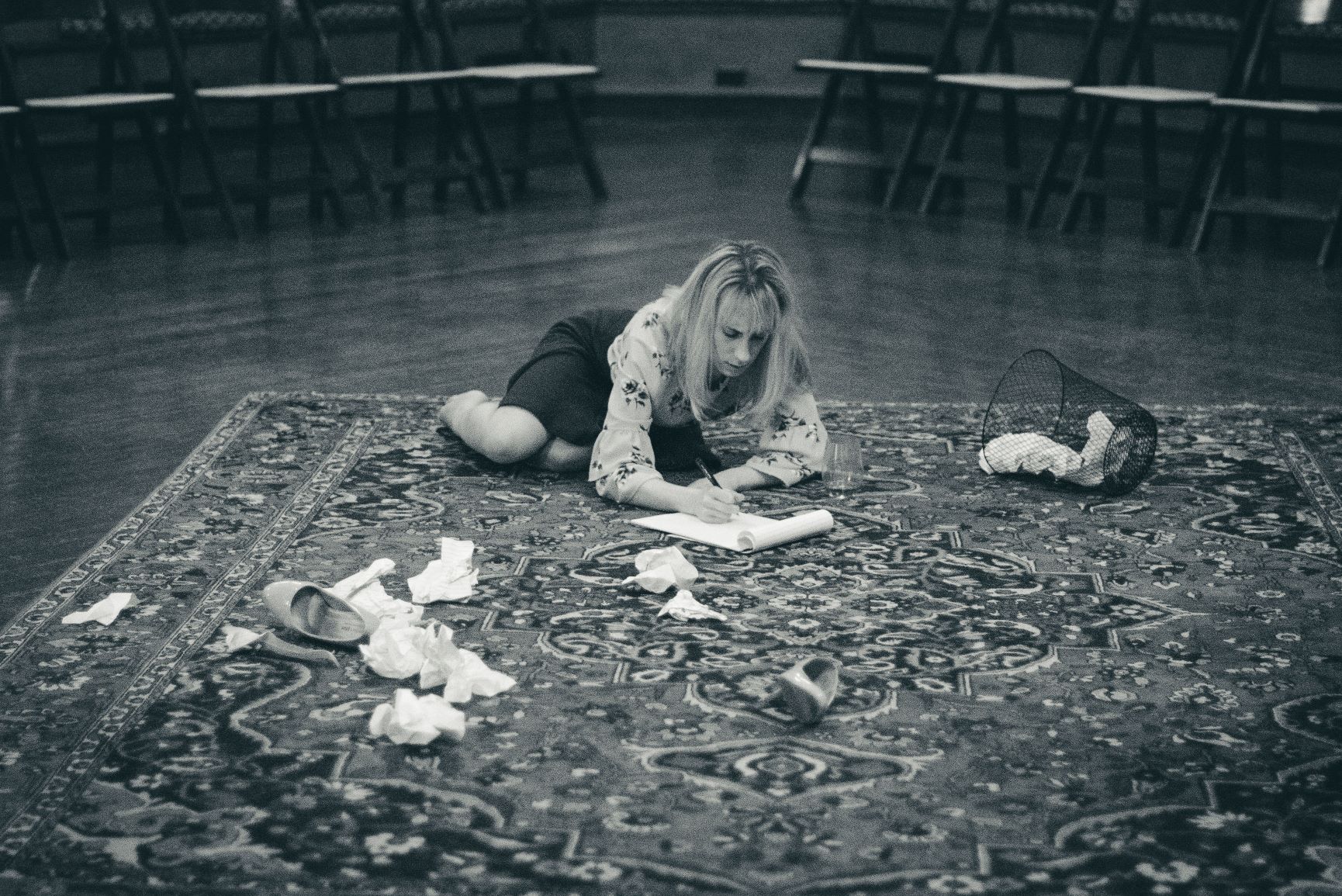Cincinnati’s newest entry into the theatre scene, the American Legacy Theatre, presents a powerful and personal scrutiny of racism on campus with its latest production, Spinning in Butter.

The driving force of the new American Legacy Theatre (A.L.T.) is to change the nature of the theatrical experience. The brainchild of Matthew David Gellin, a local actor-director who has been a regular around Cincinnati theatre, A.L.T. productions are a response to audience feedback concerning topics their audience wants to see discussed onstage. From that point, A.L.T. finds plays which match up those topics. In addition, the group is dedicated to presenting their shows in intimate, site-specific settings that complement the themes of their shows. For example, in November, the company had a show held on the Cincinnati Bell Connector streetcar in response to audience interest in gentrification in Over-the-Rhine. Finally, A.L.T. has another lofty but important vision: to become part of a National Theatre in the United States, the only first world country without one.
Spinning in Butter examines the rise of racially motivated hate crimes , which are becoming all too common on college campuses. One such form of hate crime, writing racially derogatory notes against minority students, is the basis for A.L.T.’s current production, written by playwright Rebecca Gilman, who experienced a similar incident while as a student.
Spinning into Butter takes place at fictional Belmont College, a private school in Vermont where the student population is largely white. Dean of Students Sarah Daniels has to work around the needs of her fellow administrators and the college community when racially charged notes appear at the dorm room of Simon Brick, an African-American freshman. What follows is a revealing exposé on how the administration and student body respond to the racist incident.
For this show, Gellin took this topic of racial injustice and found a strong venue where it could explored“”The Carnegie Center of Columbus Tusculum. A former Carnegie library, the center“™s main activity room is perfect for conveying the serious academic nature of Belmont College. Bookcases line the walls of the theatre space. Gellin further stages the show using theatre in the round, meaning that there are no privileged viewpoints. As a director, Gellin does a fine job at moving actors through the space without privileging a particular angle.
I saw their production on a Monday night and Monday nights are reserved for the understudies to perform. Part of the mission of the American Legacy Theatre is to be a teaching company and they have a complete cast of understudies for every role. Not only are they on call in case an actor in the main cast can“™t make it onstage, they also get a chance to tread the boards for at least two productions throughout the run of the show. Being an understudy for this show also means attending almost all of the rehearsals of the main cast.
Since I saw an understudy cast, I will not go into critiquing performances, other than to say that there was some fine actingt. I did get a chance to interview both actors playing Sarah“”Hannah Rahe Goodman and her understudy Katelyn Nevin. What follows are some of the questions that came up in the post-show Q&A, as well as through conversation with the actors after the show:
What was the most challenging thing about performing this show?
Rahe Goodman: I had to stop judging Sarah [my character]. I was struggling to memorize some of her lines because I saw her as a racist. I had to find ways to stop judging her and letting her reveal her own thoughts without my commentary.
Nevin: The long monologue Sarah has in Act II [where Sarah reveals her racism]. Also, I have three younger siblings who are mixed race, so playing a racist has been hard. I am close to my younger sister and I have to stop thinking about her whenever I get to Sarah“™s long monologue. I could not get through it otherwise.
What was the experience of rehearsing this play?
Rahe Goodman: Since Sarah is in every scene, Matt [Gellin] made me work on breathing from my diaphragm during rehearsals so that I could sustain my performance. I“™ve gotten into the practice of doing a ten-minute meditation where I would mindfully breathe before a show and it helps sustain my breathing during performance. It also helps me have more of an emotional connection with Sarah, making me able to go deeper into her character.
Nevin: I was at most of the rehearsals with Hannah [Rahe Goodman], so I got a chance to see her at work. I was impressed with Hannah“™s process of rehearsal in the way that she could get to the emotions within a scene. It helped me with my performance with Sarah.
Sarah interacts with all the characters within the play. Which character is the most fun for you to work off of?
Rahe Goodman: It is a toss-up between Ross [played in the main cast by Caleb Farley] and Strauss [played in the main cast by Elliott Young]. It is fun with Elliott because he can give back as much as I give him within the play. With Caleb, we can work off each other very well.
Nevin: Ross [played in the understudy cast by Ray Dzhorgov]. Ray and I are friends offstage and we have the same sarcastic type of personality. It is fun working with him on stage.
Even having seen the understudy cast, I feel that this production of Spinning into Butter is a very worthwhile experience. It is a provocative piece of theater and a good sign for things to come from American Legacy Theater. I would put this on the list of theatre productions to check out. Spinning into Butter runs for the next two weeks, with performances running at 7:30 pm on February 7, 11 (second understudy performance), 15, and 16 with 2pm performances on February 10 and 17. Tickets can be obtained on their website www.americanlegacytheatre.org/.


